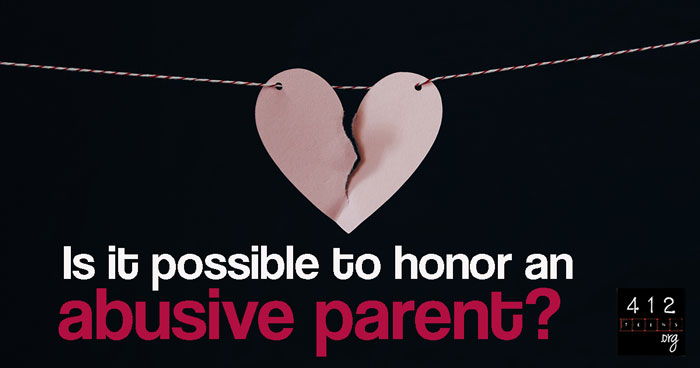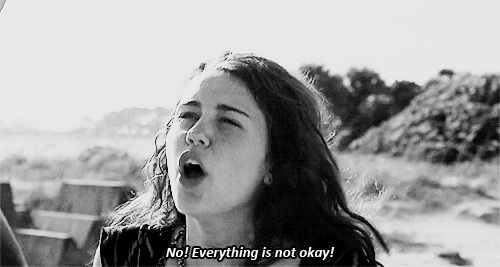How do I honor or show respect to an abusive parent?

DISCLAIMER: If you're in an abusive or dangerous environment, we strongly encourage you to seek assistance from a trusted adult or the police as soon as you safely can.
Is it possible to honor an abusive parent? Abuse comes in many forms. A child might be well-fed and clothed, yet his parent withholds love and acceptance from him. A child may not suffer physical abuse, but she withers under verbal and emotional abuse. Then, there is, of course, the more obvious kind of abuse—when a child is neglected, kicked and beaten or, worse still, sexually abused. All forms of child abuse leave crippling damage and scars that linger well into adulthood for many people. Should victims survive their abusers, the concepts of forgiveness, honor, and respect toward their abusers may seem impossible.

The Difficulty in Honoring the Dishonorable
Wouldn’t it be much easier if God asked us to love the lovable, respect the respectable, and honor the honorable? Strangely, the Bible instructs us to love our enemies (Matthew 5:44), respect those in authority over us (Romans 13:1-7), and to honor our parents (Ephesians 6:2) with no exceptions for those who don’t act in a godly or biblical way. In fact, the Bible questions if Christians are any different than the pagans (non-believers) if they only love those who love them back.
“You have heard the law that says, ‘Love your neighbors and hate your enemy. But I say, love your enemies! Pray for those who persecute you! In that way, you will be acting as true children of your Father in heaven. For he gives his sunlight to both the evil and the good, and he sends rain on the just and the unjust alike. If you love only those who love you, what reward is there for that? Even corrupt tax collectors do that much. If you are kind only to your friends, how are you different from anyone else? Even pagans do that. But you are to be perfect, even as your Father in heaven is perfect." —Matthew 5:43-48
What does this passage look like IRL? Obviously, it isn’t an easy thing to do. I'd go so far as to say it's impossible to do with our own strength (Philippians 4:13). We need the Holy Spirit to instruct and guide us through loving those who hurt us.
First, before I give you some ideas of what showing respect to an abusive parent might look like, let me share that I know what it's like to experience emotional abuse from a parent. My daughter’s father is emotionally distant from both of our kids and has been verbally cruel to our daughter. In the past, he went as far as to suggest that she get a “slight case of anorexia" to help her weight problem. I want you to know this because I know it's annoying to get super trite advice like “Love your enemies!” from someone who has no clue how hard it can be when your “enemy” is the person who's supposed to love you and care about you. I get it.

Showing respect, honoring, and loving someone who has hurt or continues to hurt you does NOT mean you're condoning the abusive behavior.
Abuse is never OK, and you don't have to be OK with it. Also, you are NEVER obligated to remain in a dangerous or abusive environment, and you do NOT need to agree with the hurtful things said to you or about you. EVER.
How to Respect the Disrespectful
Practically speaking, when we respect, honor, and love, we refrain from returning hateful speech for hateful speech (1 Peter 3:9). Fighting fire with fire, in this case, is not godly. We can certainly tell those who hurt us that they have done so, and we can ask them to change their actions, behavior, and speech towards us. We can even set firm boundaries for how they may or may not be a part of our lives as we work toward living in a healthy state. (See Ephesians 4:29)
As we do these things, we do so prayerfully and respectfully—and sometimes from a distance if we need to remove ourselves from a toxic environment. We are wise about choosing a time and place for asserting ourselves to discuss the hurt we're experiencing to a time when we might actually be heard—as opposed to lashing out in the heat of the moment.
Being respectful also means that we don’t speak disrespectfully about the abuser. That doesn’t mean that we can’t seek help, safety, or counseling or speak with a trusted friend/adviser about what we're experiencing. It just means we don’t maliciously speak ill of them just to harm their reputation. (See Philippians 2:3-4)
Will I ever be able to forgive my abusive parent?
We aren't going to say that forgiveness is ever easy in this situation. Nor are we going to give a timeline for forgiveness. But we can say that a willingness to forgive honors both God and the parent. Again, we must stress that granting forgiveness does NOT mean you are excusing the abuse.

Let go of expectations that your parent will ever be the parent you hoped they would be. Replace your disappointment and sadness with acceptance of who they are right now. Cultivate an attitude of compassion for the things your parent does right (no matter how small), and express gratitude for even slight efforts to show love.
My daughter’s willingness to risk vulnerability with her father has opened opportunities for meaningful encounters and growth in her relationship with him. Forgiveness is difficult and a process, but through the Holy Spirit, it is possible—whether or not the abusive parent ever makes any healthy changes in their own life or behavior.
Praying for our enemies helps us keep a right perspective about them.
The greatest way we love, respect, and honor our enemies is to pray for them. Sometimes, when relationship is not possible (for at least a time) in order to protect our own physical, mental, or emotional well-being, prayer is all we can do. Pray for God to help them understand how their actions have had a negative impact on others and go from there. Prayer is powerful. Prayer can change hearts and mend relationships—likely not overnight but over time.
It might seem weird to think that God loves those who hurt us as much as He loves us...until we remember all the times we haven’t been so loveable ourselves. God’s desire for all to know His redemptive love knows no bounds (Galatians 1:4). Praying for our enemies to find grace is the most loving, respectful, and honoring thing we can do for someone else.
God's heart is breaking too.
God loves you, and His desire is for parents to show their children love through their words and actions. The fact that some parents do not always behave rightly towards their kids is not a reflection of how God feels for the victimized children. When our hearts are broken, God’s is too.
When we pray for an abusive parent to know and follow God’s plan for their life, we're breaking the cycle of disrespect. Think about how much power that gives us! We can choose to give in to the negative cycle OR we can defy what most people would do and do it God’s way.
Please know that God loves you like no other. He sees your beauty and value—He created them! He knows your talents and how special you are. He has a plan for your life. He cheered the day you were born, the day you chose to allow Jesus to be Lord of your life, and He cheers when you do the hard but right things when the world tells you to seek revenge. Whether or not your parents do, God sees you and values you more than you can imagine. And you are so, so, SO loved.

ALSO SEE:


TL;DR
Showing respect, honoring, and loving someone who has hurt or continues to hurt you does NOT mean you're condoning the abusive behavior. Abuse is never OK, and you don't have to be OK with it or remain in an abusive environment. While forgiveness won't be easy or fast, a willingness to forgive honors both God and the parent. When we respect, honor, and love, we refrain from returning hateful speech for hateful speech. When we pray for an abusive parent to know and follow God’s plan for their life, we're breaking the cycle of disrespect. We can choose to give in to the negative cycle OR we can defy what most people would do and do it God’s way.

Writer: Rhonda Maydwell
Rhonda is an author, wife, mother, and mentor. She graduated from the University of Missouri with a degree in English and Religious studies. She loves studying God’s Word for truth and wisdom and uses it as a compass and roadmap for her own spiritual journey. Rhonda believes in sharing the Good News and the hope found in biblical truths with others. She uses her writing and mentoring opportunities (often with a pinch of humor) to do just that.
